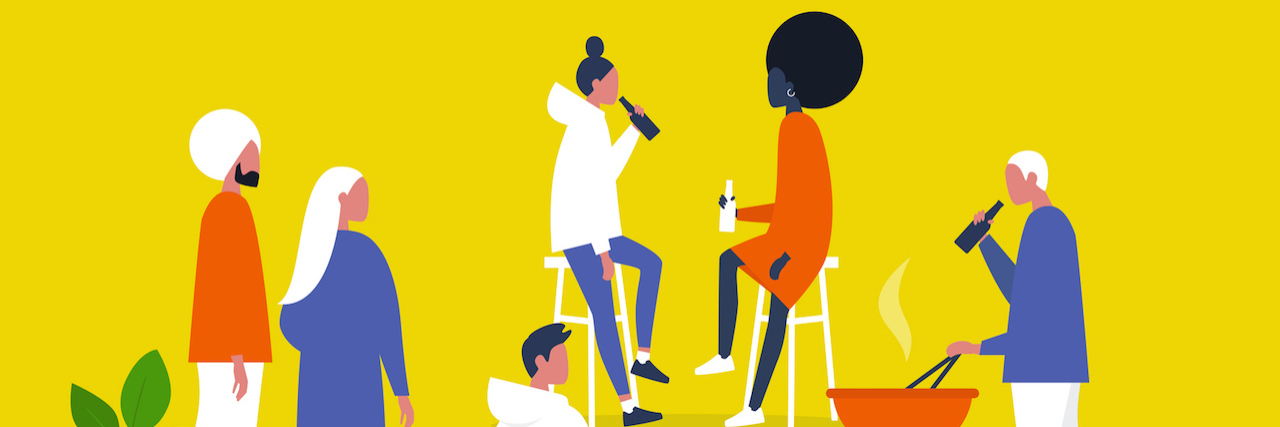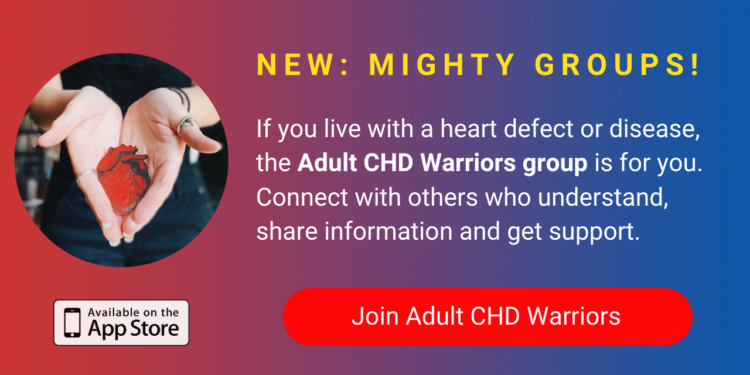Reconsidering What 'Returning to Normal' Means in the Time of COVID-19
Author Charles Wu recently wrote a compelling piece in The Atlantic, in which he said:
“Human civilization — thanks to advancements in science, medicine, social and governmental structures — exists inside a bubble, protected from the kind of cataclysmic event we are currently experiencing.”
Wu makes a solid point about this “bubble,” especially for those of us living with a chronic and progressive illness like heart disease, which makes us particularly vulnerable to this “cataclysmic event” called COVID-19.
I must add that Wu is a Columbia University-trained corporate lawyer-turned-TV-writer-turned novelist living in California, so he might be forgiven for omitting in that sentence what he really means: “human civilization in first world countries.”
Developing countries may or may not enjoy the advancement privileges that he (or I) enjoy, and it could be further argued that many neighborhoods within his own United States do not take privileges for granted either. It can take a global pandemic to remind us that any modern advantage we enjoy exists only within this fragile bubble, described by Wu as having a “thin layer that pops easily.”
Now, events that were once considered inviolable – sending our kids to school, for example, or weddings, graduations, even funerals – have been postponed indefinitely. Lineups for both food banks and toilet paper hours long. Nursing homes filled with virus-infected seniors whose families were not allowed to hold their hands while they lay dying.
That bubble has popped. But the center of that bubble, the part that will persist long after current COVID-19 precautions are lifted, according to Wu, is the psychological bubble that many of us still cling to.
“What we really mean when we say that this pandemic feels ‘unimaginable’ is that we had not imagined it. Even as our stark new reality becomes clear, it remains hard to accept that ‘normal’ was the fiction.
It will take some time to let go of the long-held, seldom-questioned assumptions of everyday life: that tomorrow will look like yesterday, next year like the last.”
Within a few short months, we have graduated together from a crash course that teaches us how unstable our life on this precious earth can indeed be, as precarious as it has always been for others who are not like us.
As many seem to believe, bad things are what happen to other people. And if they do happen to us (through death or divorce or a life-altering medical diagnosis), we will somehow survive by clutching at trite platitudes like “Everything happens for a reason!” or “God never gives you more than you can handle!”
What we’ve been experiencing during this COVID-19 crisis is a thin sliver of the catastrophic reality that have always been happening worldwide, far beyond the perimeter of our own cozy bubbles: devastating droughts, famine, earthquakes, hurricanes, forest fires, war zones, refugee camps and other sources of fear and suffering that we mistakenly believe will never touch us.
Here’s a closer-to-home example: consider the people we see interviewed on the news every year whose homes are built in the middle of a flood plain. Decade after decade, tearful families share truly awful stories of being homeless after yet another devastating flood, as if surprised this could have happened to them. Again.
Julie Morse once interviewed her neighbors in western Washington state about this phenomenon. It’s an area so prone to flooding that rivers there have reached flood stage more than 1,400 times in the last 20 years. Yet people continue to rebuild their flood-damaged homes on flood plains (usually with the assistance of government-funded disaster relief programs) — as if they can’t believe they live on a flood plain. They simply cannot accept that reality.
Of course, we long for a return to the way our lives were, pre-COVID-19, but first we need to accept reality and to learn what the countries affected before us have had to learn. When physical distancing, stay-home protocols and travel restrictions are abandoned, this novel coronavirus will almost certainly re-emerge in a second wave, just as it has done in Singapore, France and other areas.
According to Dr. Bonnie Henry (British Columbia’s chief public health officer and a veteran expert from the front lines of polio, Ebola, H1N1 and SARS): “There has never in history been a global pandemic that didn’t include a second wave.”
And an effective vaccine is at least 18 to 24 months away, despite the unfounded election-fueled promises of politicians who feel compelled to tell us only what we want to hear, and what will get themselves re-elected.
Now is not the time to weaken important public safety precautions based on protecting the common good. The end of the COVID-19 virus crisis won’t be like shutting off a tap, although we may dream longingly about how great it will be “when this is over.”
Our five-year-old granddaughter Everly Rose asks me, “When can we have sleepovers at your house again, Baba?” One day, precious girl, one day. . .
That dream will take time, likely far more time than we can even guess at this point. So do not be surprised to see that the pandemic news reports will continue to include scary lists of new confirmed cases, new hospitalizations and new deaths as people begin too early to abandon public precautions.
For those living with chronic illness who have been white-knuckling through the weeks and months of self-isolation, in fear of catching this virus, it’s especially important for us to acknowledge reality instead of politicized bafflegab and conspiracy theories.
Hospitals and medical specialists will now be busy playing catch-up, treating worsening medical conditions of those whose treatments have been delayed by more urgent COVID-19 priorities. See also: “Empty beds: when heart patients are afraid to seek help.”
Charles Wu concludes his unique perspective in The Atlantic with a nod to the lived reality of the majority of the globe’s citizens:
“Things aren’t necessarily going to be OK in a reasonable time frame just because we want them to be.
To think otherwise is to succumb to fiction, a sheltered, resource-rich mindset, presumably not shared by the billions of people who have long lived in volatile conditions and are thus under no such illusions.”
People whose expertise and experience have been built on global front lines studying how pandemics actually work will not be making idle promises to patch up that magic bubble for us.
Please. Stay safe.
Follow this journey on Heart Sisters
For more the coronavirus, check out the following stories from our community:
- When COVID-19 Blows Over, Please Remember People With Chronic Illnesses
- Thoughts From the Chronic Illness Community as We Transition Out of Quarantine
- 5 Parallels Between Life During COVID-19 and Living With Chronic Illness
- For Anyone Who Needs to Hear This: It’s OK to Just Exist Right Now
- The Rage of Watching Everyone I Know End Quarantine as Someone With Chronic Illness
Getty image by nadia_bormotova


